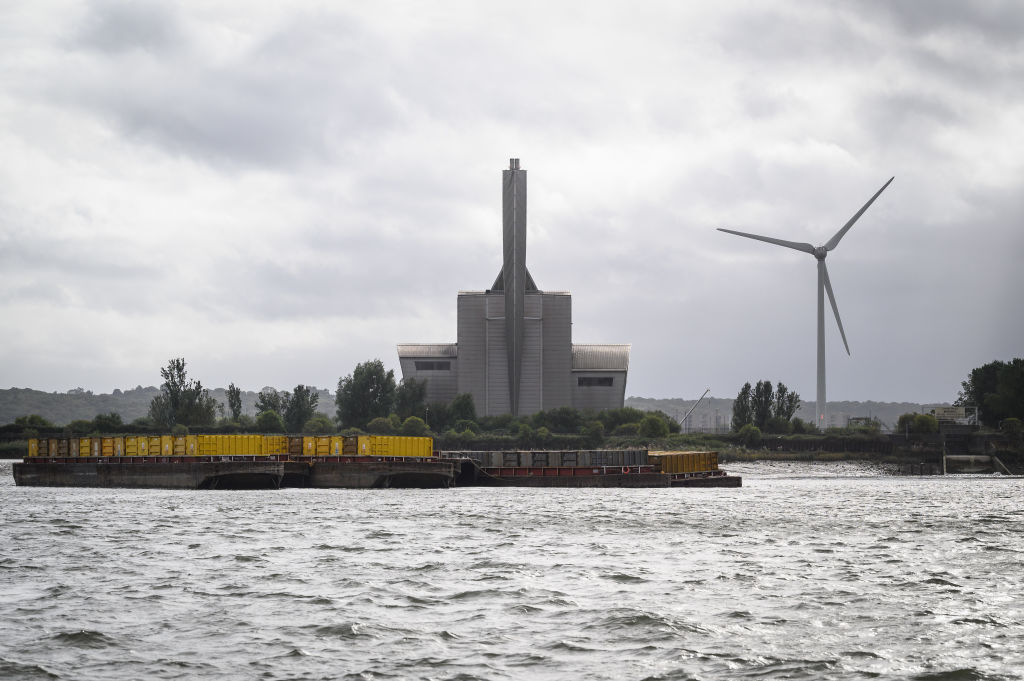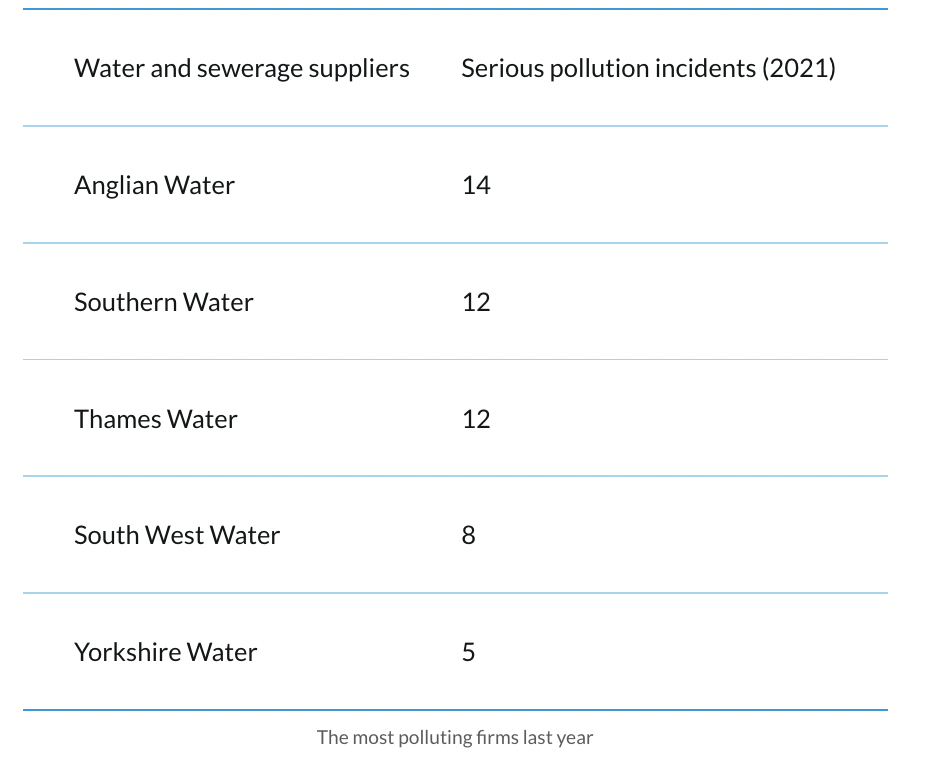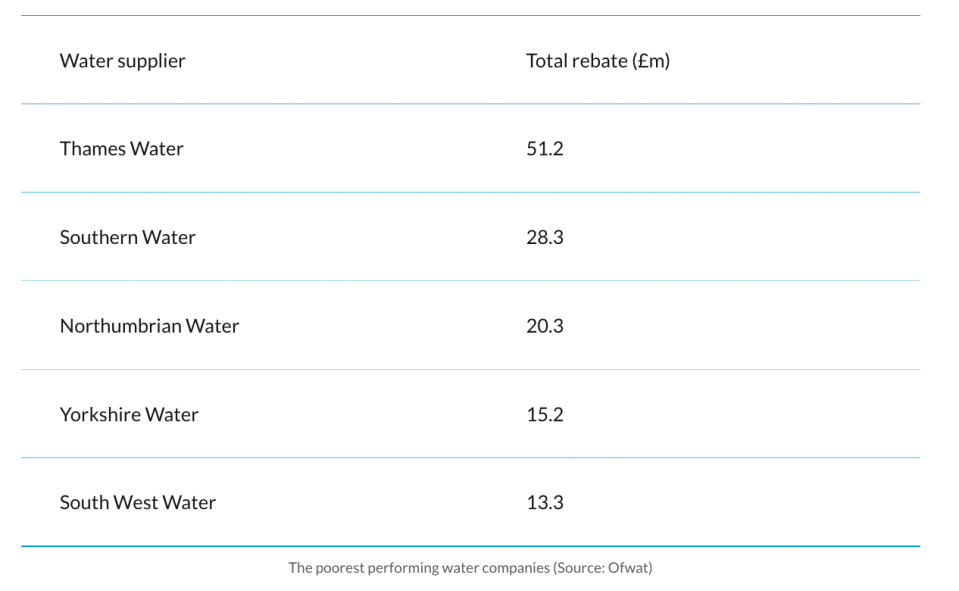UK faces £100bn bill to fix water system, warns watchdog chief

It would cost hundreds of billions of pounds to fix the UK’s network of pipelines, reservoirs and treatment works to develop a modern system that separates sewage and rainwater, warned Sir James Bevan, chief executive of the Environment Agency.
He told the House of Lords of Lords today that revamping a centuries old sewage system was possible, but that it was a “£100-200bn problem.”
This would make fixing the country’s water system potentially more expensive than the Covid furlough scheme and the energy support package for households combined.
Bevan said: “The cleanest solution the obvious solution is a modern system which separates sewage and rainwater – and those things exist. But we estimate the cost of retrofitting the whole country to that system is in £100-200bn.
“So, there has to be a debate about whether that is the best use of that money, or would you want to put it into other things that would perhaps be better for water quality?”
He explained that the Victorians first established the UK’s sewer overflow system, which is designed to divert water and diluted sewage in times of high rainfall into large bodies of water such as river and seas.
While this is on longer an ideal sewage process, he suggested improving performance, such as addressing company failures at sewage treatment works and fixing leaky pipelines would be more viable than retrofitting the entire water system.
Lack of government funding waters down action
The House of Lords’ Industry and Regulators Committee is holding an extensive inquiry on the performance of regulator Ofwat amid concerns over sewage dumping in rivers and poor performance of water companies in addressing leaks and environmental damage.
Alongside concerns over costs in fixing the sewage system, Bevan argued that the agency’s ability to fund prosecutions was being hampered by a lack of finances.
The Environment Agency is not allowed to use the £200m of operational funds raised from water companies every year to finance prosecutions, and instead relies on Government grants to fund its work through the court.
Bevan said funds have “diminished” over the past 10 years which has “put pressure on numbers of people and resources toward prosecution.”
This means it has instead pursued internal enforcement action rather than fighting companies through the legal system.
Enforcement action happens when a water company admits to an offence and volunteers information.
The Environment Agency will then waive prosecutions in exchange for them funding the full remediation of the damage.

He said: “The benefit of that is that the money goes straight back into repairing the environment whereas obviously if they get fined in a court, the money goes to the Treasury. Prosecution is one of the key weapons in our armoury – but we are doing less of it. That’s partly down to resource constraints. I think it’s also because we are broadening the palette of options open to us.”
Nevertheless, he confirmed to the committee that the agency would pursue jail terms for bosses that broke the law.
Bevan explained: “Directors can go to prison but it’s a high bar evidentially which so far those companies have avoided. So, we haven’t yet seen custodial sentences for a water company employee. But we wouldn’t hesitate to press for them if we thought that the circumstances and the evidence warranted it.”
This follows former chair Emma Howard Boyd calling for tougher measures earlier this year to deter rule-breaking this summer.
Since 2015 the EA’s enforcement actions against water companies have secured fines of over £138m, but this has seemingly had little effect on law-breaking.
The Government has declined to comment.
Agency pledges to boost industry performance
Since the Environment Agency began the process of installing new monitoring equipment at over 2,000 wastewater treatment works across the country, multiple water companies have revealed they were potentially failing to treat sewage properly.
Six water companies have been slapped with enforcement cases to determine whether they are complying with its environmental obligations over treating sewage water.
This includes Anglian Water, Northumbrian Water, Southern Water, Thames Water, Wessex Water and Yorkshire Water.
Ofwat and the Environmental Agency also announced a separate investigation into all water and wastewater companies last November.
Bevan argued that population growth and climate change has driven heavier rainfall and more sewage, worsening problems for companies.

He also believed there is a greater public awareness of sewer overflows and a demand to rectify it, following media reports of leaks and poor performance from water companies.
Bevan said: “I don’t think even the water companies were aware of the scale of what was going on because until a few years ago, people hadn’t really thought that it was an issue that was a particular importance. There’s been greater public and media scrutiny of what’s happening, which I welcome. This has both helped us and the water companies focus on the on the issue.”
Earlier this month, Environment Secretary Ranil Jayawardena confirmed he will bring forward proposals to raise the civil penalty for water companies who pollute the environment by 1,000-fold – from £250,000 to up to £250m.
Last year there were 62 serious pollution incidents by water companies – up from 44 in 2020.
Watchdog Ofwat has also been active in recent weeks, giving customers a £150m for missing targets in supply interruptions, pollution incidents and internal sewer flooding.